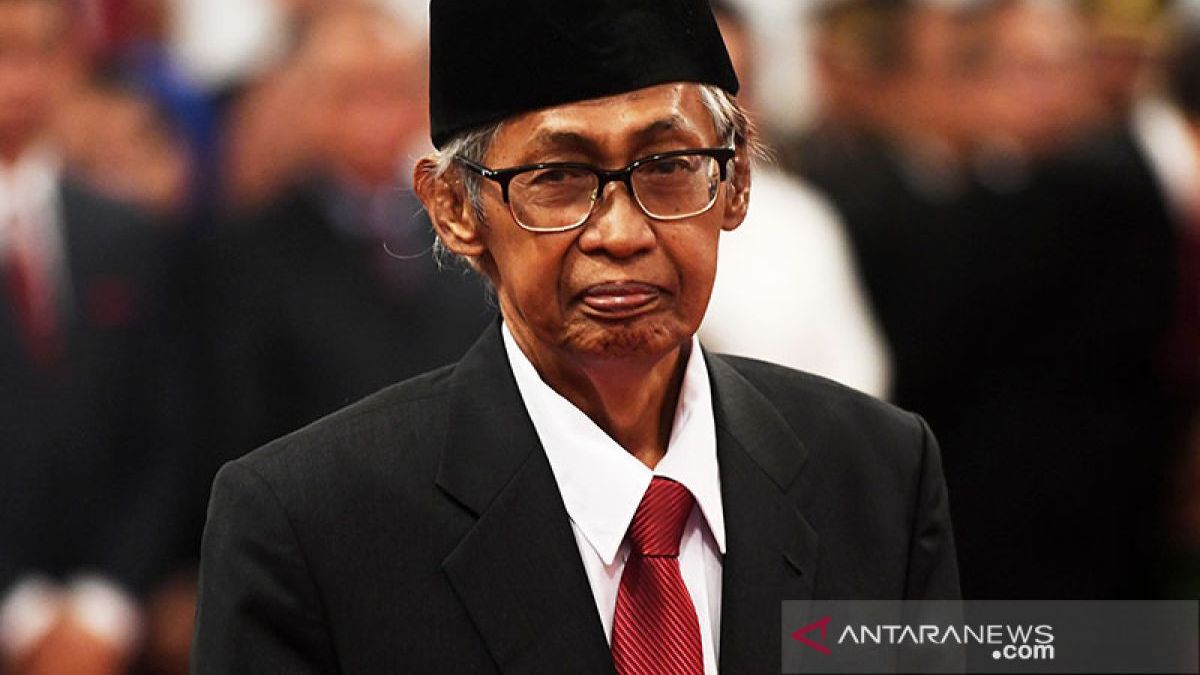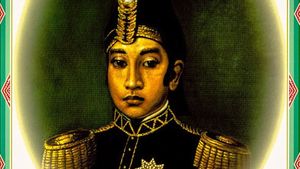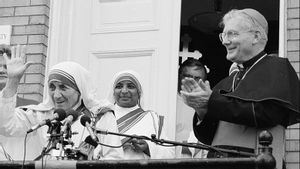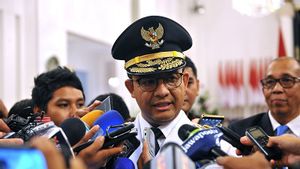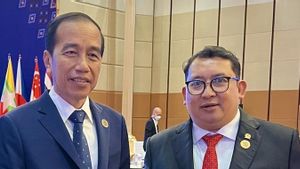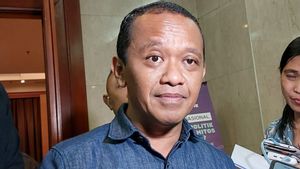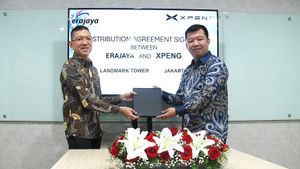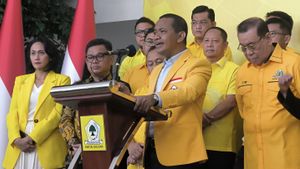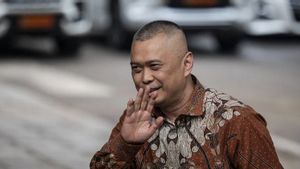JAKARTA - The matter of seeking justice and order is never easy. The narrative is evidenced by the 'ring' of Indonesian legal portraits: Sharp downwards, blunt upwards. Who has the power to stand like a winner.
Pessimism then accompanied Indonesian law enforcement. However, everything changed when the figure of Artidjo Alkostar appeared to the surface. The figure of the Supreme Court judge of Madura is like a legal warrior. The enemies of the corruptors. He is proof that Indonesian law cannot be bought with money.
Artidjo Alkostar was born to a family of Sumenep blood, Madura who was thick. he is grateful to be born as a Madurese ethnic. The tenacity and courage of the Madurese poured in his blood. He was transformed into a person who had the courage to be high. That difficulty made him unable to be pressured by anyone in the future.
This story is not an empty message from Belaka. Artidjo, who was born on May 22, 1948, was once famous for being stubborn at his school. Skipping became his hobby. The detrimental activity finally reached the ears of his parents. His father understood that Artidjo was difficult to control. The strategy was played.
Instead of punishing Artidjo himself, his father actually conspired with officers at one of the police in Situbondo, East Java. Both agreed that Artidjo was picked up and thrown in prison for a day.
The event was agreed by the author of his biography Alkostar: A Biography (2018), Puguh Windrawan. The result was brilliant. Artidjo forgot his hobby of skipping. Even then Artidjo was able to complete his education stage by step. Artidjo's behavior was even more lit when he started studying law at the Islamic University of Indonesia (UII) Yogyakarta.
He is not a student who only spends time studying. Artidjo actually has his own ninja path. He chose to be active as a campus activist. He voiced all kinds of inequality and injustice. From campus to national affairs.
He is well aware of the consequences against the New Order (Orba) government. He also graduated as a UII law graduate. His dream of becoming a enforcer of justice came on. His first career was to become a teaching staff at UII in 1976. The service was perpetuated while actively helping the small people through the banner of the Yogyakarta Legal Aid Institute (LBH).
"This is a challenge (to become a teacher) which he thinks cannot be rejected and he immediately overcomes. Artidjo never even thought about how much salary he would receive. His background as a campus activist made him not distant from students. His status may change, but his daily character has not changed. Artidjo remains a fun person."
Students often discuss with him like friends, even allowed to borrow their personal collection books. Not infrequently they together watch Indian films that are screened in local cinemas. The way to teach is different from most lecturers at that time. This was influenced by his activities as an LBH Yogyakarta administrator who handled the problems of marginalized people," explained Puguh Windrawan in his writing in Tempo Berjudul Cita-Chita Magazine which Was Not Achieved (2021).
Artidjo Alkostar's qualified capacity in the field of law booms everywhere. The Minister of Justice during the reign of Abdurrahman Wahid (Gus Dur), Yusril Ihza Mahendra, was attracted. Artidjo was asked to be the supreme judge of the non-karier path.
At first, Artidjo refused. Indonesian law cannot be changed, he thought. Moreover, the incident when the judge received bribes is not new. Yusril insisted that Artidjo could change it. Artidjo was then challenged to become one of the Supreme Court judges (MA) in 2000.
Dewi Fortuna is like up in her life. Artidjo was placed as Chair of the MA Criminal Chamber. The position is like a canvas that is ready to be colored by various achievements. As Chair of the MA Chamber of Commerce, he has the capacity to choose cases that he considers strategic. From money laundering, murder, drugs, and corruption.
The rest, other cases were delegated to other Supreme Court justices. The results are brilliant. He handled many major cases. He once handled the foundation's corruption case cassation with the defendant former President Suharto in 2001. He insisted on labeling the defendant, even though Suharto was sick.
His popularity increased when he handled corruption cases. Corruptors who were initially severely punished, so they don't think twice about perpetuating further legal remedies. From cassation to review.
Artidjo's name then became even more flashy when he dared to try high-ranking Democratic Party officials in Hambalang's corruption. His power as a judge was unable to be bought. Whoever harms the country and the people, he will give the appropriate punishment. As a result, the big names of Democracy Party officials such as Anas Urbaningrum, Muhammad Nazaruddin, and Angelina Sondakh were given severe punishments.
The practice of straight life is still perpetuated even though Artidjo is no longer the supreme judge in 2018. He continued to try to uphold the spirit of resistance against corruptors through a new medium. He became a member of the Supervisory Board of the Corruption Eradication Commission (KPK) from 2019 until his death to pick him up in 2021.
The case that catapulted Artidjo's figure in the eyes of the public was his decision on former Democratic Party leader, Angelina Sondakh. After receiving a light sentence from the corruption court in the form of only 4.5 years in prison, plus a fine of 25 thousand US dollars. In January 2013, the decision of Supreme Court Justice Artidjo in further legal proceedings increased his sentence to 12 years and Angelina Sondakh had to return 3.42 million U.S. funds that were misappropriated.
"Then, in a corruption case involving the President of PKS, Luthfi Hasan Ishaaq (LHI), the KPK added two years to the 18 years in prison that LHI received in addition to revoking its political rights to hold public office and having to pay a fine of Rp1 billion. Meanwhile, regarding the case of former Chairman of the Democratic Party Anas Urbaningrum, the Supreme Court added eight years in prison for the 14 years he received, revoked his political right to hold public office, and ordered him to pay a fine of Rp5 billion for the violations he committed and return Rp57.5 billion to the state treasury," said Shagu Juwono in the book Against Corruption (2018).
SEE ALSO:
The English, Chinese, Japanese, Arabic, and French versions are automatically generated by the AI. So there may still be inaccuracies in translating, please always see Indonesian as our main language. (system supported by DigitalSiber.id)
